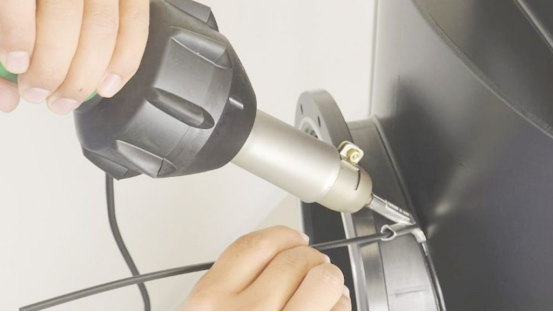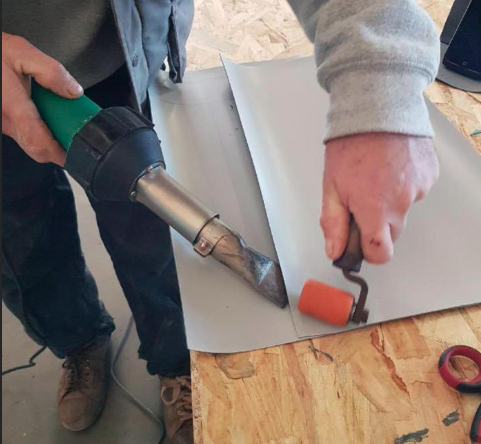+86 512 5879 0108
+86 512 5879 0108
Mastering PVC Hot Air Welding: Proven Techniques for Durable, Invisible Seams
Hot air welding stands as the gold standard for fusing thermoplastic materials like PVC (polyvinyl chloride), offering industrial-grade durability without compromising material integrity. Unlike adhesive bonding or mechanical fastening, this technique creates molecular-level fusion, producing joints stronger than the base material itself. Whether fabricating chemical-resistant tanks, sealing architectural membranes, or repairing industrial equipment, hot air welding delivers unmatched results. This comprehensive guide unpacks advanced methodologies, equipment insights, and trade secrets to elevate your welding precision.

Hot air welding employs precisely directed heat to induce thermoplasticity – the state where polymers become viscous yet retain structural memory. For PVC (which softens at 160-180°C), this process activates chain entanglement between surfaces. Key advantages over alternative methods:
Zero consumables: No filler rods/chemicals required for rigid PVC
Material preservation: Maintains UV/chemical resistance at joint areas
Stress distribution: Eliminates weak points from screws/adhesives

- Abrade mating surfaces with 80-grit alumina sandpaper (removes gloss layer)
- Wipe with cyclopentanone solvent to eliminate plasticizer migration
- Bevel edges at 45° for >3mm thick stock (creates V-groove weld pool)
2. Thermal Profiling
- Set nozzle temperature: 280-320°C (adjust for ambient humidity)
- Maintain 10-15mm gun distance (closer for black PVC, farther for white)
- Preheat zone 20mm beyond joint path to prevent thermal shock
- Use 4mm oscillating motions with conical nozzle (30° airfoil tip)
- Apply 15N downward pressure via PTFE roller within 3-second heat window
- Overlap passes by 40% on multi-bead welds
---
Tool | Specification | Purpose |
Hot Air Gun | Professional hot air guns NEICO AT1600 is recommended
| Consistent heat profiling |
Welding Nozzles | Interchangeable (flat, round, speed)
| Material thickness adaptation |
Pressure Roller | Silicone,Adaptive width
| Bubble-free consolidation |
*NEICO HOT AIR GUN AT1600 detial link
*NEICO WELDING NOZZLE Purchase link
*NEICO PRESSURE ROLLER Purchase link
Industrial Applications & Material Pairings
Construction: Waterproof roofing membranes (0.8-2mm PVC-P)
Chemical Processing: Lining reactor vessels (Kynar-reinforced PVC)
Transportation: Truck tarp repairs (PVC-coated polyester)
Optimal Pairings:
l PVC to PVC: 100% bond strength
l PVC to ABS: Requires copolymer welding rod
l PVC to HDPE: Not recommended (differential shrinkage)
Advanced Pro Tips
l Tandem Welding: Use dual guns for >6mm thickness (front melt/rear flow)
l Post-Weld Annealing: 60°C oven treatment for 45min relieves residual stress
l Non-Destructive Testing:
- Spark tester (15kV/mm) detects pinholes
- Peeling test (15N/mm width validates adhesion)
Mastering these techniques transforms hot air welding from a simple joining method to an engineering-grade fabrication process. By controlling thermal gradients and polymer flow dynamics, professionals achieve seamless bonds that withstand decades of service – the hallmark of true craftsmanship in thermoplastic assembly.
Previous: None
Next: NEICO Teflon Seam Roller
ZHANGJIAGANG NEICO TOOLS CO., LTD.
Add.: NO.17-18, Building 6, International Trade City, Tangqiao Town, Zhangjiagang 215600, Jiangsu, China
Mob: +86 139 1570 3340
Tel.: +86 512 5879 0108
Fax: +86 512 5879 0108
Skype: neicotools
E-mail: sales@neicotools.com
Web: www.neicotools.com
Products
Site Map